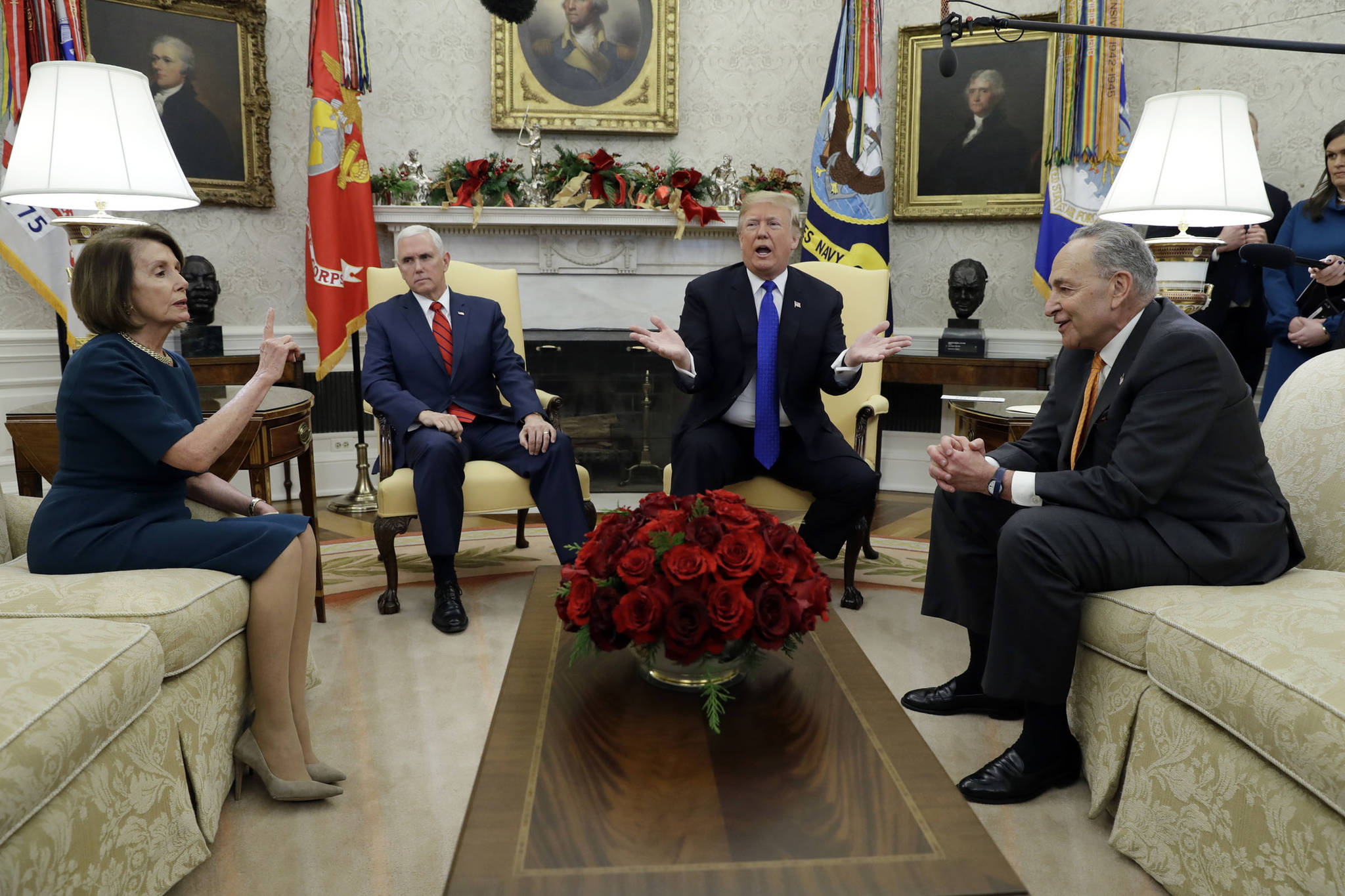In one of the most memorable memes of 2018, President Donald Trump was mocked for suggesting the horrific California wildfires could have been prevented if Californians had only spent more time raking the forest floor free of leaves.
Trump supporters insisted this just referred to forest management practices in general. Trump detractors predictably saw this as ignoring the effects of climate change.
Depending on your view, both were right.
Still, this was a good example of humor being used to illustrate a point.
But often, criticism is not so lighthearted.
[Let’s continue kindness in 2019]
In today’s world of political correctness and gotcha moments, every word, gesture and facial expression of political leaders, celebrities, pundits and newsmakers are parsed endlessly and mercilessly on social media and talk shows.
The toxic rhetoric then escalates to a fever pitch with neither side backing down.
Usually, there is an allegation that what was really meant was an expression of racism, misogyny or hatred for someone who thinks differently. And therefore, we must be offended.
Being considerate about how we speak and act around others is good. But being afraid to speak your mind is not.
Bridging our differences depends on our willingness to discuss them openly, not hide them. It also would be helped by using more humor and less nastiness.
It’s entirely possible what someone perceives as an offensive (though possibly insensitive) remark is not meant to demean. But the temptation to take offense and assume some ulterior motive is very powerful.
It becomes easier to play the victim card than try to understand another’s viewpoint.
Wouldn’t it be better to accept an apology and move on?
A great example of this was the recent Saturday Night Live skit ridiculing Navy SEAL Dan Crenshaw for wearing an eye-patch — a result of combat injuries he received during his third deployment to Afghanistan. Crenshaw, who had just been elected a congressman from Texas, declined to ask for an apology and instead said, “I want us to get away from this culture where we demand apologies every time someone misspeaks.”
That alone would have qualified Crenshaw as an anomaly in political circles, but he took it one step further. Crenshaw agreed to appear on SNL in a humorous skit accepting an apology from host Pete Davidson and shaking hands afterward. The YouTube video of that skit has more than eight million views.
It was a very powerful message for our nation.
If we all could turn over one new leaf and make good on a New Year’s resolution this coming year, my hope would be that we would tone down the rhetoric that seems to dominate our political landscape today.
And we would not be looking to be offended at every turn.
As Cal Thomas, noted syndicated newspaper columnist, has opined, “There are plenty of people who would love to destroy us. We shouldn’t help them by destroying each other.”
Watching the current congressional battles over illegal immigration is a case in point.
[Opinion: Politics haven’t changed]
In the politically-charged environment of Washington, D.C., one party assumes the other is cruel, uncaring or even racist. The other party assumes the other doesn’t recognize the impacts and costs of allowing unfettered immigration to go unchecked. Both seem intent on making sure the other doesn’t get credit for any kind of solution.
So we remain stuck.
Alaskans seem to have their own thorny issues, as well. From the Permanent Fund Dividend to resource development, there are many disagreements about how we should move forward.
We have a new governor and administration along with new legislative leadership who deserve an opportunity to govern.
Wild assumptions and baseless claims made in an attempt to sabotage them before they even begin work are not productive.
Our next legislative session may prove me wrong, but, Alaskans, by and large, have remained civil while willing to work through solutions.
We can start by accepting the premise that there is a solution to every problem. The solution may not be what everyone wants but it will reflect a compromise that Alaska needs to move forward.
If that happens, 2019 will be a year to celebrate.
• Win Gruening retired as the senior vice president in charge of business banking for Key Bank in 2012. He was born and raised in Juneau and graduated from the U.S. Air Force Academy in 1970. He is active in community affairs as a 30-plus year member of Juneau Downtown Rotary Club and has been involved in various local and statewide organizations.

